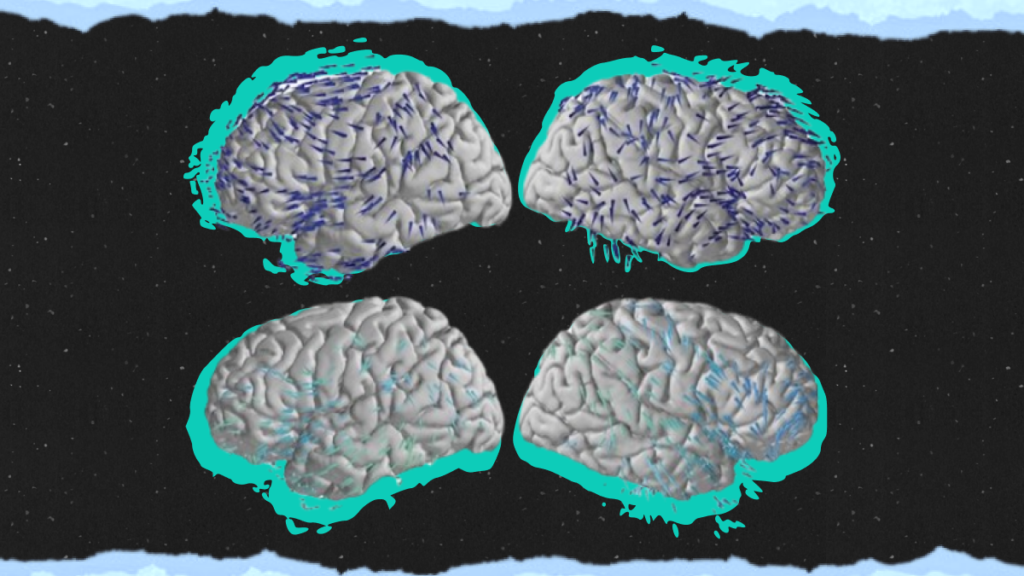How Brain Waves Drive Memory Formation and Recall?

In a recent breakthrough study, researchers from Columbia Engineering have provided profound insights into the brain’s mechanisms for swiftly transitioning between memory encoding and retrieval. Published in Nature Human Behaviour, this research underscores the significance of a newly identified brainwave phenomenon known as travelling waves in facilitating these cognitive processes.
– Brain Waves: Catalysts of Memory Dynamics
– Deciphering the Brain’s Choreography: Understanding Memory Mechanisms
Under the leadership of Joshua Jacobs, an esteemed associate professor of biomedical engineering at Columbia Engineering, the study meticulously examined the neural activity of 93 participants engaged in memory-related tasks. The findings revealed a notable pattern: during memory encoding, waves propagated from the posterior to the anterior regions of the brain, while during recall, the direction reversed, moving from anterior to posterior.
– Forward Progression and Retrograde Recall: The Dynamics of Memory Waves
Uma R. Mohan, a co-author of the paper and postdoctoral researcher at NIH, emphasized the significance of these discoveries. She highlighted that the study marks a substantial advancement in comprehending brain oscillations as dynamic “travelling waves” traversing the cortical landscape, rather than static phenomena confined to specific brain locales.
– Dynamic Brain Rhythms: Illuminating the Nature of Traveling Waves
Leveraging data from individuals undergoing treatment for drug-resistant epilepsy, the research team conducted direct observations of brain activity via implanted electrodes. Through meticulous analysis of participants’ brain waves in memory tasks, the researchers discerned a strong association between the direction of travelling waves and memory performance. Notably, heightened accuracy was observed when wave propagation aligned with pertinent memory processes.
– Interpreting Brain Signals: Insights from Epilepsy Patients
These findings not only deepen our comprehension of memory processing mechanisms but also herald potential diagnostic and therapeutic avenues. Jacobs posited that by gauging the direction of brain waves, predictive behavioural insights could be garnered, paving the way for novel brain-computer interfaces. Moreover, therapeutic prospects are considerable, with targeted wave modulation holding promise for inducing altered memory states.
– Brain-Computer Interfaces: Predictive Insights
– Therapeutic Prospects: Modulating Memory Waves
Looking forward, the ramifications of understanding travelling waves extend beyond memory functions. Mohan underscored their broader impact on cognitive domains such as attention and associative memory. As research progresses, travelling waves may serve as a cornerstone for innovative diagnostic modalities and advancements in human-computer interaction.
– Transcending Memory: Traveling Waves and Cognitive Domains
– Future Prospects: Advancing Diagnosis and Human-Computer Interaction
In essence, this study illuminates a dynamic facet of brain functionality, shedding light on how our cognitive apparatus orchestrates the intricate interplay of memory formation and recall through the rhythmic propagation of travelling waves across the cerebral cortex.
Thank you for reading! If you found this article insightful, consider subscribing to our newsletter for more engaging articles, exclusive content, and the latest updates.

